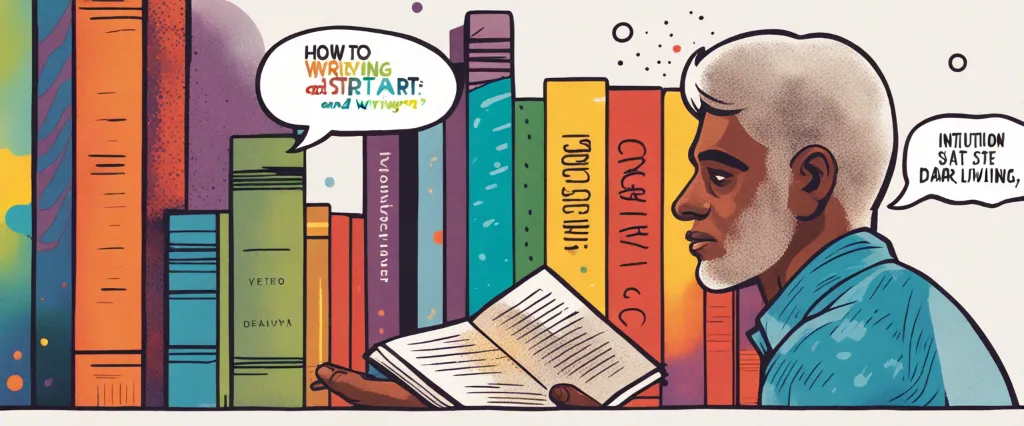——How to Stop Worrying and Start Living by Dale Carnegie & Outliers by Malcolm Gladwell

Introduction:
In the vast expanse of literary works available today, self-help and personal development books have become increasingly popular. These books serve as guides, aiming to assist readers in transforming their lives and achieving personal fulfillment. Two such influential pieces are Dale Carnegie’s “How to Stop Worrying and Start Living” and Malcolm Gladwell’s “Outliers.” Both writers delve into distinct areas of human existence, offering unique perspectives on success, happiness, and overcoming obstacles. By examining the similarities and differences between these two remarkable works, this comparative study seeks to shed light on the strategies proposed by Carnegie and Gladwell, ultimately helping readers navigate the complexities of life and unlock their hidden potential.
Brief Summary of Two Books
How to Stop Worrying and Start Living by Dale Carnegie
“How to Stop Worrying and Start Living” by Dale Carnegie is a self-help book that provides practical advice on overcoming worry and anxiety in various aspects of life. Carnegie explores the harmful effects of worrying and offers effective techniques and strategies to empower readers to stop worrying and live a more fulfilling life.
The book is divided into several sections, each focusing on a different aspect of worrying. Carnegie begins by emphasizing the importance of living in the present moment and not letting anxiety about the future consume one’s thoughts. He encourages readers to develop a positive mindset and to cultivate gratitude for the present.
Carnegie also addresses the tendency to dwell on past mistakes and regrets. He offers methods for letting go of past guilt and using those experiences as valuable lessons for personal growth. By embracing forgiveness and self-compassion, readers can free themselves from the burdens of the past.
Furthermore, the author provides techniques for managing stress and achieving a healthier work-life balance. He emphasizes the importance of setting priorities, delegating tasks, and creating realistic goals for oneself. Carnegie also highlights the significance of physical and mental well-being, providing advice on exercise, relaxation, and effective time management.
The book also touches on improving interpersonal relationships to reduce worry and stress. Carnegie advises readers on effective communication skills, conflict resolution, and how to deal with difficult people. By fostering positive relationships and practicing empathy, readers can create a supportive network that diminishes worry and enhances overall well-being.
“How to Stop Worrying and Start Living” offers practical examples, anecdotes, and case studies that supplement Carnegie’s advice and make it relatable to readers. Throughout the book, Carnegie empowers readers to take control of their thoughts, emotions, and actions, enabling them to break free from the cycle of worrying and live a more fulfilled and peaceful life.
Outliers by Malcolm Gladwell
Outliers: The Story of Success” by Malcolm Gladwell explores the factors that contribute to exceptional achievement and success. Gladwell challenges the assumption that individual greatness is solely based on personal qualities like talent, intelligence, and hard work. Instead, he argues that societal and environmental factors play a significant role in shaping success.
Gladwell introduces the concept of outliers, individuals who are far outside the norm in terms of achievement. He presents various case studies to support his argument, including the remarkable success of Canadian hockey players born in January or February, the extraordinary achievements of the Beatles, and the factors that contribute to the remarkable academic success of Asian students.
One key idea in the book is the “10,000-Hour Rule,” which suggests that extraordinary expertise in any field is typically achieved after practicing or working on it for approximately 10,000 hours. The author illustrates this concept by examining the upbringing and experiences of highly successful individuals like Bill Gates and the Beatles.
Gladwell also emphasizes the importance of cultural legacy and background. He explores how cultural norms, family upbringing, and societal values can impact individuals’ chances of achieving success. He demonstrates how cultural legacies, such as the “language of power,” can provide an advantage for certain individuals or groups.
The book concludes by highlighting the importance of recognizing and understanding the hidden factors behind success. Gladwell challenges the notion of individual merit and encourages readers to consider the broader context in which exceptional achievements occur.
Overall, “Outliers” offers a thought-provoking analysis of success, arguing that personal qualities alone do not guarantee extraordinary achievement, but rather a combination of talent, effort, timing, and opportunities influenced by societal factors.
Comparison between Two Books

Similarities in Self-help
Both “How to Stop Worrying and Start Living” by Dale Carnegie and “Outliers” by Malcolm Gladwell fall under the self-help genre. While they have different focuses and approaches, there are several similarities in terms of their core messages and techniques for personal growth.
1. Positive thinking: Both books emphasize the power of positive thinking. Carnegie suggests that worrying is counterproductive and that individuals should focus on the present moment and find solutions rather than dwelling on problems. Similarly, Gladwell argues that a positive mindset and belief in one’s capabilities can lead to extraordinary success.
2. Personal responsibility: Both authors stress the importance of taking responsibility for one’s own life. They advocate for self-improvement, encouraging readers to actively work on their own growth rather than relying on external factors or circumstances. Carnegie encourages readers to cultivate mental habits that promote a positive and proactive mindset, while Gladwell emphasizes the need to seize opportunities and make the most of them.
3. Adaptability and resilience: Carnegie and Gladwell both recognize the importance of resilience and adaptability in achieving success. Carnegie suggests that individuals should learn to adapt and accept change, as excessive worrying about the future only hinders progress. Similarly, Gladwell stresses the ability to adapt to challenges and overcome setbacks as a crucial characteristic of successful individuals.
4. Learning from others: Both books emphasize the value of learning from the experiences and insights of others. Carnegie encourages readers to seek guidance from mentors and learn from their wisdom, while Gladwell examines the factors that contribute to success by studying the lives of extraordinary individuals. They both believe that successful personal growth can be accelerated by drawing on the experiences and knowledge of others.
5. Taking action: Both authors emphasize the importance of taking action and avoiding excessive analysis or overthinking. Carnegie advises readers to take immediate action to address their worries, as this helps to divert attention from negative thoughts and improves problem-solving abilities. Similarly, Gladwell posits that the most successful individuals possess a bias for action and are willing to take risks.
In summary, while “How to Stop Worrying and Start Living” and “Outliers” have different themes and subject matters, they share several similarities in terms of their approach to self-help. Both books promote positive thinking, personal responsibility, adaptability, learning from others, and taking action as essential elements for personal growth and success.
Divergences in Self-help
“How to Stop Worrying and Start Living” by Dale Carnegie and “Outliers” by Malcolm Gladwell are both popular self-help books aimed at helping individuals improve their lives. However, they differ in their approaches, scope, and the specific aspects of self-help they focus on.
1. Approach:
– Carnegie’s book focuses on strategies and techniques to overcome worry and anxiety. It offers practical advice on how to change one’s mindset and manage stress effectively.
– Gladwell’s “Outliers” takes a broader approach, examining the factors that contribute to success in various fields. It explores the idea that success is not solely dependent on individual effort, but rather influenced by external factors such as opportunity, cultural background, and timing.
2. Scope:
– “How to Stop Worrying and Start Living” primarily delves into strategies for personal wellbeing. It offers techniques for dealing with everyday worries, overcoming obstacles, and achieving a more positive outlook on life.
– In contrast, “Outliers” explores success at a societal level. It investigates patterns and outliers in various fields, such as sports, music, and business. The book seeks to understand the factors that contribute to exceptional achievements and challenges the notion of individual merit as the sole determinant of success.
3. Specific Aspects of Self-help:
– Carnegie’s book focuses on self-improvement by addressing worries and anxieties, emphasizing the importance of adopting a positive mindset, managing stress, and developing effective problem-solving techniques.
– “Outliers” takes a different route, examining the concept of success through external factors that are often overlooked. The book suggests that self-help involves understanding and adapting to the environments and circumstances that surround individuals, rather than focusing solely on personal attributes and abilities.
In summary, while both “How to Stop Worrying and Start Living” and “Outliers” fall under the general category of self-help, they approach the topic from different angles. Carnegie’s book concentrates on personal worries and techniques to manage them, while Gladwell’s “Outliers” explores success on a broader scale, questioning the idea of individual merit and examining external factors that shape exceptional achievements.

Conclusion
Both “How to Stop Worrying and Start Living” by Dale Carnegie and “Outliers” by Malcolm Gladwell are highly regarded books in their respective fields. Here’s an overview of each book to help you decide which one might be more beneficial for you to read:
1. “How to Stop Worrying and Start Living” by Dale Carnegie: This book focuses on providing practical techniques and advice to overcome worry and live a more fulfilling life. Carnegie, a renowned self-help author, offers strategies to tackle stress, anxiety, and fear, emphasizing the power of positive thinking, proactive problem-solving, and gratitude. If you are seeking guidance to improve your mental well-being and deal with worry, this book might be an excellent choice.
2. “Outliers” by Malcolm Gladwell: In this book, Gladwell explores various factors that contribute to extraordinary success. He challenges the notion of solely attributing success to innate talent and instead examines cultural, social, and historical influences. Gladwell identifies patterns and outliers, providing intriguing insights into how different opportunities and circumstances shape high achievers. If you are interested in understanding the underlying factors behind success and the broader context in which it occurs, this book is worth reading.
Ultimately, the choice between these two books depends on your specific interests and goals. If you’re looking for practical guidance on dealing with worry and improving your mental well-being, “How to Stop Worrying and Start Living” may be more fitting. On the other hand, if you’re intrigued by the factors influencing exceptional success and want to gain a deeper understanding of achievement, “Outliers” might be a more suitable choice.


